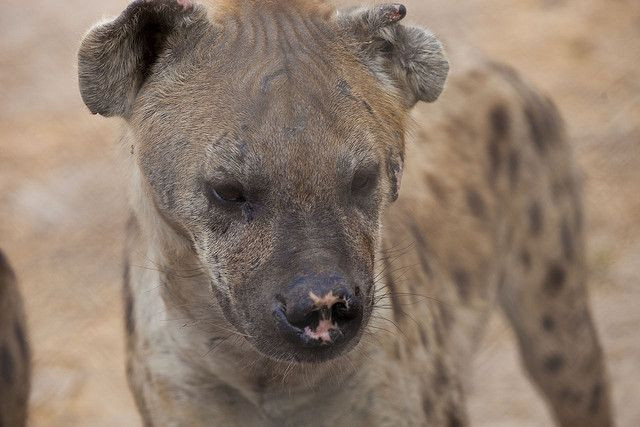Somalia's Mentally Ill Caged With Hyenas: Nurse Challenges Practice, Calling It 'Nonsense'

A nurse posing as a subversive psychiatrist is at the helm of a Somali awareness campaign designed to illuminate the science and reality of depression, schizophrenia, and anxiety disorder in a nation where the mentally ill have traditionally relied on witchdoctors and hyenas.
After three months of specialist training from the World Health Organization (WHO), Abdirahman Ali Awale of Somalia has taken it upon himself to phase out the counterintuitive, pseudoscientific, and violent recourses that the African nation currently offers the mentally ill. In an awareness effort aired three times a day on the nation’s radio stations, the nurse assumes the persona Dr. Hab — a wise psychiatrist who promises to help the patients that sheiks and herbalists would otherwise poison or chain to trees. Although Dr. Hab isn’t real, Awale hopes that the subversive persona will help the nation understand that depression, schizophrenia, psychosis, and anxiety disorders are as real as any other disease.
"There is a belief in my country that hyenas can see everything including the evil spirits people think cause mental illness. So in Mogadishu, you will find hyenas that have been brought from the bush and families will pay £350 to have their loved one locked in the room overnight with the animal," he said, adding that the treatment bill often exceeds a family’s annual income. “We are trying to show people that this is nonsense. People listen to our radio advert and they learn that mental illness is just like any other and needs to be treated with scientific methods.”
For some time, the war-torn country has been plagued by some of the highest mental illness rates in the world. According to the WHO, one in three Somalis either is or has been affected by psychiatric disease. Awale believes that the vertiginous rates stem from widespread posttraumatic stress disorder (PTSD) perpetuated by substance abuse — particularly the herbal stimulant khat.
"Khat is a big, big problem," he said, speaking to BBC. "We treat them in the hospital and they leave, but then they start eating khat again. Sometimes I see the same patients seven or eight times."
Today, Awali’s group operates six treatments centers, including the Habeb Public Mental Health Hospital in Mogadishu. When he isn’t campaigning, the wise Dr. Hab is out in the field, rescuing patients who have been chained to trees or locked up in cages along with wild animals. So far, the group has saved and treated over 15,000 patients.



























